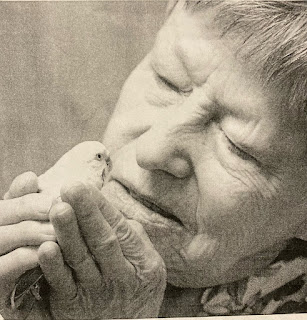Many people roll their eyes when a beauty pageant
contestant is asked to name three wishes and the first is inevitably “world
peace.” No one seems to take such a wish seriously — perhaps because (1) such a
dream appears impossible to achieve and (2) it comes across as an insincere attempt
to express concern for others.
Although we might envision a world of peace in
which wars have ceased, nations cooperate in sharing resources and caring for
the needs of the poor, and the peoples of the world are seen as interconnected,
this is not the peace Jesus told us to expect. He said, “Peace I leave with
you; my peace I give to you. I do not give to you as the world gives. Do
not let your hearts be troubled, and do not let them be afraid” (Jn 14: 27).
The source of Jesus’ peace was not being loved by others, enjoying the seeming security of possessions, or having a conflict-free life; rather, it came from his relationship
with his Father. He knew he was loved (“This is my beloved son”) even when
others rejected him and conspired to put him to death. The peace he
gives us is to know we share in that love, which is present even in the midst
of human conflict, greed, and weakness.
Just as Jesus bequeathed his peace to us, we can cultivate
a peaceful spirit to share with others. Here are some ways to do that:
• Treat people with respect and empathy, even
when you disagree with their opinions or oppose their behavior
• Take the long view: this too shall pass
• Trust that the love of God is stronger than any
obstacle you may face
• Be humble, accepting that you don’t always have
answers or solutions
• Understand that appearances may be deceiving; a
situation you judge as “bad” might eventually lead to “good”
• Become attached to God, not to possessions
• Spend some time in prayer and silence each day and
learn how to tame your mind’s busyness and worries
Although it’s a safe assumption that we won’t experience
world peace in our lifetime, we can move a little closer to that goal by
cultivating inner peace, as A.P.J Abdul Kalam noted:
Where
there is peace in the heart, there is beauty in the character. When there is
beauty in the character, there is harmony in the home. When there is harmony in
the home, there is order in the nation. When there is order in the nation,
there is peace in the world.




























